How to Maximize the Lifespan of Your 12v Lithium Ion Battery with Proper Maintenance Techniques
Table of Contents
- Best Practices for Charging Your 12v Lithium Ion Battery Safely
- Optimal Storage Conditions for Longevity of Lithium Ion Batteries
- Routine Maintenance Checks to Enhance Battery Performance
- Understanding Battery Discharge Cycles for Extended Lifespan
- Signs of Wear and Tear: When to Replace Your Lithium Ion Battery
- FAQS
- Conclusion
- Related Posts
In today's energy-driven landscape, the demand for efficient energy solutions is paramount, especially with the increasing reliance on 12v Lithium Ion Batteries across various applications, from household energy storage to electric vehicles. Studies indicate that the global lithium-ion battery market is expected to grow significantly, reaching approximately $100 billion by 2025, with a compound annual growth rate (CAGR) of over 20%. This growth is fueled by technological advancements and the push for more sustainable energy solutions. At Roofer Electronics Technology (Shanwei) Co., Ltd., we leverage over 27 years of experience in the R&D, manufacturing, and service provision of lithium batteries and energy storage systems to highlight the critical importance of proper maintenance techniques for maximizing the lifespan of 12v Lithium Ion Batteries. By implementing effective maintenance practices, users can not only enhance battery life but also optimize performance, thereby supporting the broader transition to greener energy solutions.

Best Practices for Charging Your 12v Lithium Ion Battery Safely
 When it comes to extending the lifespan of your 12v lithium-ion battery,
safe charging practices are paramount. According to a recent study by the Battery Technology Association,
improper charging can reduce battery lifespan by up to 30%. To maximize performance,
always use a charger specifically designed for lithium-ion batteries. These chargers typically feature
built-in protection mechanisms that prevent overcharging,
which is crucial since lithium batteries can swell or even catch fire if overcharged.
When it comes to extending the lifespan of your 12v lithium-ion battery,
safe charging practices are paramount. According to a recent study by the Battery Technology Association,
improper charging can reduce battery lifespan by up to 30%. To maximize performance,
always use a charger specifically designed for lithium-ion batteries. These chargers typically feature
built-in protection mechanisms that prevent overcharging,
which is crucial since lithium batteries can swell or even catch fire if overcharged.
Tips for Charging Your 12v Lithium-Ion Battery Safely:
- Avoid Full Discharges: Lithium-ion batteries should be recharged
when they reach around 20% capacity. Deep discharges can lead to irreversible
cell damage and significantly shorten lifespan.
- Temperature Matters: Charging your battery in moderate temperatures
(between 20°C to 25°C) ensures optimal performance. Extreme heat or cold can
impact efficiency, potentially leading to diminished capacity and increased wear.
- Regular Maintenance Checks: Keep an eye on the connection points
and inspect the battery casing for any signs of wear or damage. Routine maintenance helps ensure that your battery
operates safely and efficiently, as noted in industry reports
that emphasize the importance of preventative care.
Implementing these best practices not only enhances safety but also optimizes the longevity and performance of
your 12v lithium-ion battery.
Optimal Storage Conditions for Longevity of Lithium Ion Batteries
Optimal storage conditions significantly contribute to the longevity of lithium-ion batteries, particularly those operating at 12 volts. To maximize lifespan, it is crucial to keep the battery in a cool, dry environment. Ideal temperatures typically range between 20°C to 25°C (68°F to 77°F). Extreme temperatures, particularly heat, can accelerate degradation, while excessive cold can temporarily reduce performance. Avoid storing your battery in areas with high humidity or direct sunlight, as these conditions can also lead to premature wear.

Additionally, maintaining an appropriate state of charge is essential. Lithium-ion batteries should ideally be stored at a charge level between 40% to 60%. Storing a battery fully charged or completely drained can negatively impact its capacity over time. If the battery must be stored for an extended period, it is wise to periodically check the charge and recharge if necessary to prevent deep discharging. By implementing these storage strategies, the overall health and lifespan of your 12v lithium-ion battery can be significantly enhanced.
Routine Maintenance Checks to Enhance Battery Performance
Routine maintenance checks are essential for enhancing the performance and extending the lifespan of your 12v lithium-ion battery. According to a report from the Battery Council International, approximately 80% of battery failures can be attributed to improper maintenance practices. Regular inspections should include checking for physical damage, ensuring clean terminals, and monitoring voltage levels. Keeping terminals clean can prevent corrosion, which is a common issue that impairs battery connections and reduces efficiency.
In addition, it is crucial to regularly monitor your battery's charging cycles. Research by the International Battery Association suggests that lithium-ion batteries can lose up to 20% of their capacity if consistently overcharged or discharged below optimal levels. Implementing a smart charging system that utilizes battery management technology can significantly mitigate these risks. By adhering to these maintenance techniques, users can optimize battery performance, keep operational costs low, and essentially contribute to a more sustainable use of these power sources.
Battery Lifespan Maintenance Techniques
This chart demonstrates various maintenance techniques and their impact on the lifespan of a 12V lithium-ion battery. Regular maintenance can significantly enhance performance and longevity.
Understanding Battery Discharge Cycles for Extended Lifespan
Understanding the discharge cycles of a 12v lithium-ion battery is crucial for maximizing its lifespan. A lithium-ion battery typically has a limited number of charge cycles, which refers to the complete discharge and subsequent recharge of the battery. According to a report by the Battery University, a lithium-ion battery can endure around 500 to 1,500 charge cycles before its capacity diminishes significantly. Properly managing these cycles can lead to prolonged utility and efficiency.
To extend the lifespan of your battery, it is essential to avoid deep discharges. Research suggests that discharging a lithium-ion battery below 20% can accelerate capacity loss. Ideally, keeping the battery’s state of charge between 20% to 80% can substantially enhance its longevity.
Moreover, maintaining optimal temperature conditions is also vital; studies have indicated that high temperatures can lead to faster degradation, with impacts ranging from a 20% reduction in lifespan at elevated temperatures to nearly doubling the lifespan at cooler temperatures. By adhering to these discharge cycle guidelines, users can significantly maximize the performance and longevity of their 12v lithium-ion batteries.
Signs of Wear and Tear: When to Replace Your Lithium Ion Battery
When it comes to ensuring the longevity of your 12v lithium-ion battery, recognizing the signs of wear and tear is crucial. One of the first indicators that your battery may need replacement is a noticeable decrease in performance. If you notice that your devices are not running as efficiently or require frequent recharging, it may be time to assess the health of your battery. Additionally, keep an eye out for physical changes such as swelling or deformation, which can indicate that the internal cells are failing.
Another critical sign to watch for is unusual heat during operation or charging. Excessive heat can compromise the battery's safety and efficiency, leading to a shortened lifespan. If your lithium-ion battery produces more heat than usual, it’s essential to check for underlying issues. Lastly, monitor the age of your battery; most lithium-ion batteries have a lifespan of about 2 to 3 years. If your battery has reached this age and shows signs of deterioration, it is prudent to consider a replacement to maintain optimal performance in your devices.
FAQS
: The optimal storage conditions for lithium-ion batteries are a cool, dry environment with temperatures typically ranging between 20°C to 25°C (68°F to 77°F).
Extreme temperatures can accelerate degradation of the battery; heat can worsen wear, while excessive cold can temporarily reduce its performance.
It is advisable to avoid storing batteries in areas with high humidity or direct sunlight, as these conditions can lead to premature wear.
Lithium-ion batteries should ideally be stored at a charge level between 40% to 60% to preserve their capacity over time.
To maintain battery health during storage, check the charge periodically and recharge if necessary to prevent deep discharging.
Routine maintenance checks should include inspecting for physical damage, ensuring clean terminals, and monitoring voltage levels.
Corrosion on the terminals can impair battery connections and reduce efficiency, so keeping terminals clean is crucial.
Overcharging or discharging below optimal levels can lead to a loss of capacity, with research indicating up to 20% capacity loss if not managed properly.
Implementing a smart charging system that utilizes battery management technology can mitigate risks associated with overcharging and deep discharging, thus optimizing battery performance.
Approximately 80% of battery failures can be attributed to improper maintenance practices, highlighting the importance of regular maintenance.
Conclusion
To maximize the lifespan of your 12v Lithium Ion Battery, it is essential to implement key maintenance techniques and best practices. Start by adhering to safe charging methods, ensuring that the battery is not overcharged or exposed to extreme temperatures during the process. Proper storage conditions, such as a cool and dry environment, will significantly enhance the longevity of your battery. Regular routine maintenance checks can help identify any performance issues early on, while understanding the battery's discharge cycles is crucial for extending its operational life.
Additionally, being attentive to signs of wear and tear will enable you to decide when it is time to replace your lithium ion battery, avoiding unexpected failures. With over 27 years of experience, Roofer Electronics Technology (Shanwei) Co., Ltd. specializes in high-quality lithium batteries and energy storage solutions that cater to various applications, ensuring you get the best performance from your 12v Lithium Ion Battery.
Related Posts
-
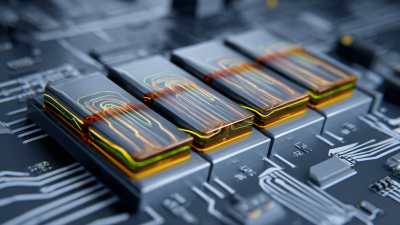
Ultimate Guide to Understanding Li Ion Pack Technology and Its Market Potential
-
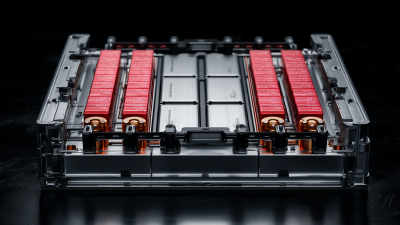
Why Lithium Iron Phosphate Batteries Stand Out Among Other Battery Technologies
-

How to Choose the Right Lithium Battery for Your Device
-
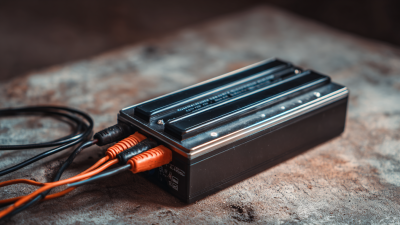
How to Extend the Lifespan of Your 36v Lithium Battery: Tips and Tricks
-
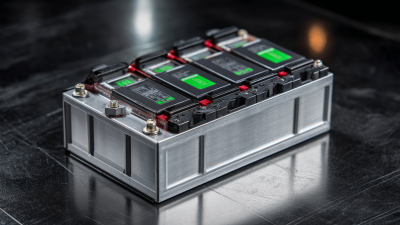
Understanding the Industry Standards for Best 12v Lithium Iron Battery Production
-
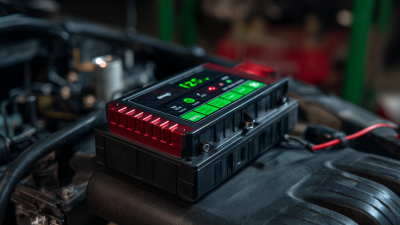
What Are the Key Benefits of Using 12V Lithium Ion Batteries in Your Devices?
Blog Tags:





 business@roofer.cn
business@roofer.cn +86 13502883088
+86 13502883088






